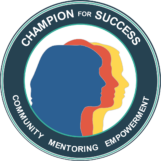
“I wish” is a dreamy hope lacking power and motivation. “I will” is a statement of intention to accomplish whatever a person chooses.
The richest soil on the planet is said to be found in graveyards where unfulfilled dreams are buried—dreams that were held for a lifetime while being wished into oblivion. There is a strong distinction between I wish versus I will. Social scientists and linguists have long observed that our language constructs our reality. Words are both predictive and descriptive. Wishing for something means someone is waiting for the fairy godmother to wave her wand and make everything right. Approaching a project with an “I will” attitude creates a strong intention to complete the task and inspires a level of motivation that is often unstoppable.
I Wish
Many children’s stories in the U.S. teach that by wishing hard enough, something will come true. Unfulfilled dreams are always overcome in fairy tales. In the real world, a pattern of doing the same thing over and over while expecting different results may arise from a childhood belief that “As long as I am wishing hard enough, I’ll get what I want, regardless of what I am doing.” That belief is running on a hamster wheel named “I wish I could.” The safety of staying with what is familiar is tied to “I wish”. An individual stuck there never has to push his limits or explore his unique possibilities or meet his creative self. He doesn’t have to change or take a risk or manifest his soul work.
I Will
The “I will” assertion has an entirely different feel to it. It carries a sense of determination, of inner motivation and drive to overcome any obstacle that could lead to unfulfilled dreams. Someone with an “I will” attitude is far more likely to finish a project than is someone with an “I wish” mindset. Yet within “I will,” there can be traps.
Iron Will
The notion of iron will has been very popular in the U.S. It’s a “go it alone, succeed at all costs” attitude of accomplishing goals. Don’t ask for help and never mind the pain. Sacrifice personal relationships at all levels in order to be “successful.” Work before play, if play even shows up in this person’s life. He is cut off from his own and everyone else’s emotions, believing that attending to them would slow or even stop his progress. He may receive a lot of accolades for his accomplishments but he pays a high price in superficial relationships and enormous stress and unfulfilled dreams could still haunt him. His perspective leaves no room for the fluidity and flexibility of creative energy that can enliven any project. It leaves no room for a mentor.
Creative Will
“I will” that is founded in creative will opens possibilities. The individual with this perspective allows his soul level creativity to saturate his ideas. He attunes himself to his life purpose then proceeds to turn his dreams into a reality that reflects his creative energy. His accomplishments connect with other people because his feelings are alive and, for the most part, well. A thoughtful risk-taker, he deliberately stretches his limits and encourages others around him to do the same. With access to a mentor, this individual gets where he wants to go by incorporating the insights and encouragement provided by this guide.
Quicksand
Everyone’s life path becomes a quagmire from time to time. The wisher gets bogged down when this happens. The iron will person hammers and claws his way out, proving once again to himself how tough he is. The person using creative will enlists the assistance and guidance of his mentor, develops creative solutions to the challenges and evolves into an ever-more well-developed person.
Personal Power, the Wish and the Will
The relationship of the wisher, the iron will and the creative will person to his personal power deserves to be explored. Both the wisher and the iron will person are not empowered. Seeing this with the wisher is relatively easy. Everything regarding his dreams is outside of him because he wishes this or that would happen so that his dreams would come true. He puts his power onto things around him rather than using it for his own well-being. The individual operating with iron will may look powerful, but that is a shallow view. He may be bossy with others, telling them what to do just as he is bossy with himself. But that’s not being empowered. His iron will is in charge of his life. The creative will individual is empowered by his creative soul. He takes full responsibility for his life and encourages others to do the same. Working with a mentor who reinforces this empowerment reinforces his inner relationship with himself.
Community
The wishers and the iron will types are typically cut off from community that could help them learn about empowerment. Wishers may talk to their friends and relatives about what they would like to do “if only . . .” but they never build a network that would support their efforts. The iron will people often look as if they have community but the people surrounding them represent individuals who have given their power over to the iron will person. And no one asks for help. The person living through creative will can come to understand the need for being in an empowered community of people who are also experiencing life through their creativity. They know that no one ever really accomplishes anything alone and that a nurturing community filled with mentors empowers everyone to use their creative will to make their unfulfilled dreams become reality.
C Diane Ealy holds a Ph.D. in behavioral science. She specializes in the creative process and devotes her life to facilitating personal growth and empowerment. She is the author of five books including The Woman’s Book of Creativity, The Complete Idiot’s Guide to Spirituality in the Workplace, Our Money Ourselves and Your Creative Soul.

